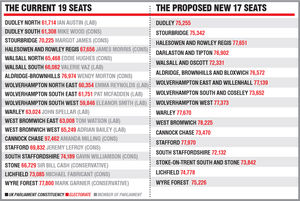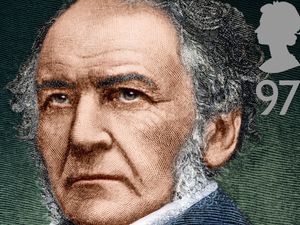Express & Star comment: Boundary changes had to come
The changes announced by the Boundary Commission are long overdue.

Yes, there will be the anomalies and appeals from both individual MPs and political parties who feel they haven’t benefited from the ‘rub of the green’.
And some of the proposals do make ‘a dog’s breakfast’ (as one MP put it) of the geographic constituencies on our patch.
However, there are two strands of logic to these changes that are undeniable.
The first is that we have too many MPs.
The House of Commons is so over stuffed with Parliamentarians that no-one can be guaranteed a seat because the chamber simply cannot accommodate them.
ANALYSIS: All change in major boundary shake-up
Besides these practicalities, there is a more pressing issue: the iniquity of some seats – particularly inner city Labour constituencies – that represent as few as 54,000 voters, compared to more rural areas that represent 100,000 or more.
It cannot be right that the votes of some people should carry more weight than others.
Whatever changes the Boundary Commission came up with were bound to be controversial, particularly given the political make-up of the current chamber. However, few people would argue there is no need for change.
Locally it means that some constituencies will grow in size, many will change their geographical footprint and two will disappear altogether.
The West Midlands is lucky to be represented by a body of extremely hard-working and well-respected MPs at the moment,by and large.
Their rewards, while far beyond the reach of most ordinary working people, are no longer the riches they once appeared to be. Some of them will be winners, others will be losers in this reorganisation.
It remains to be seen exactly how things will shake out for our Parliamentary representatives.
All these changes, however, will fail to tackle the biggest conundrum facing the British constitution: what to do with the highly politicised make-up of the House of Lords. The Upper House is plagued by the legacy of Tony Blair and his flair for cronyism.
It is not the Commons, but this wretched upper chamber that presents the biggest challenge facing constitutional reform in the years to come.





